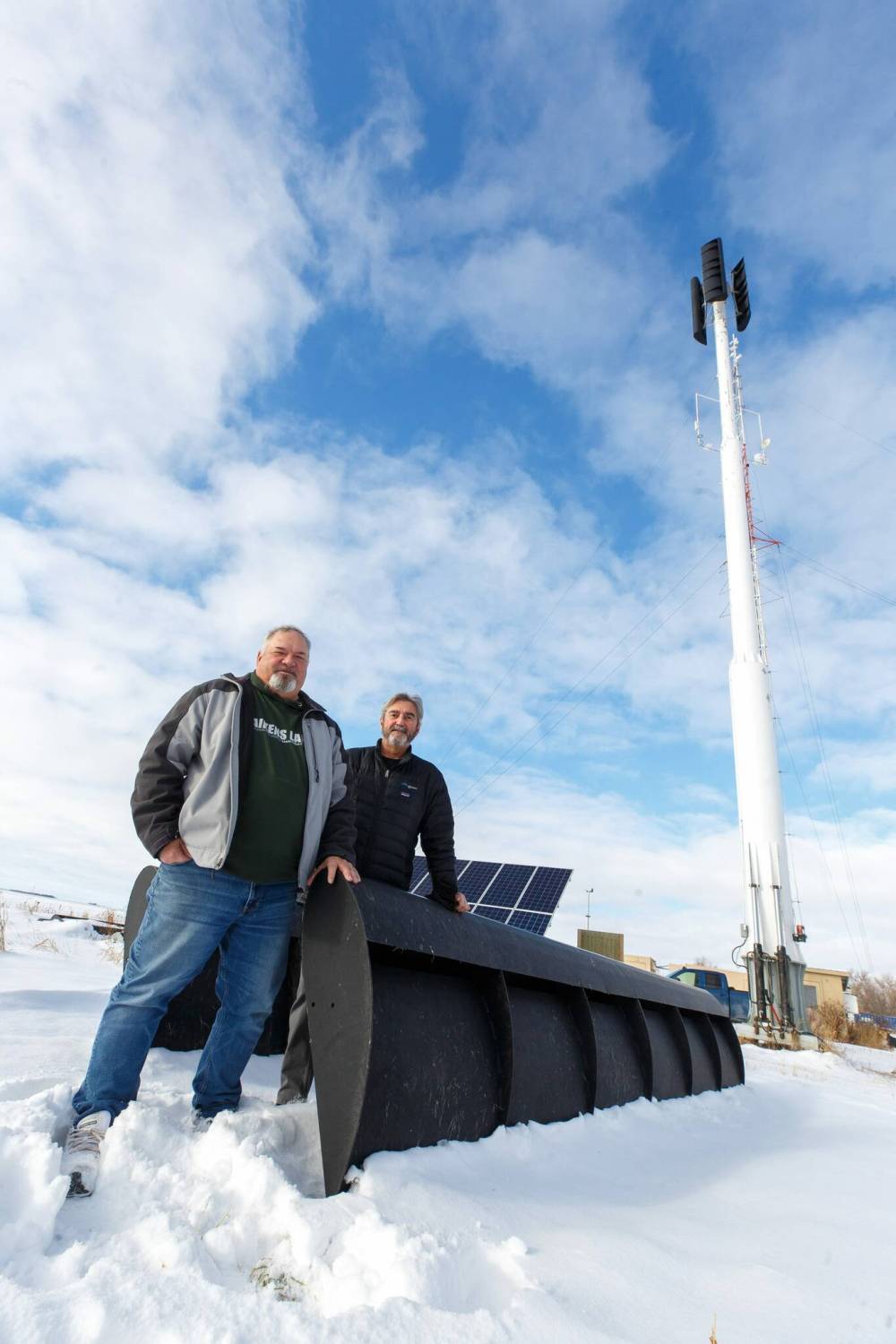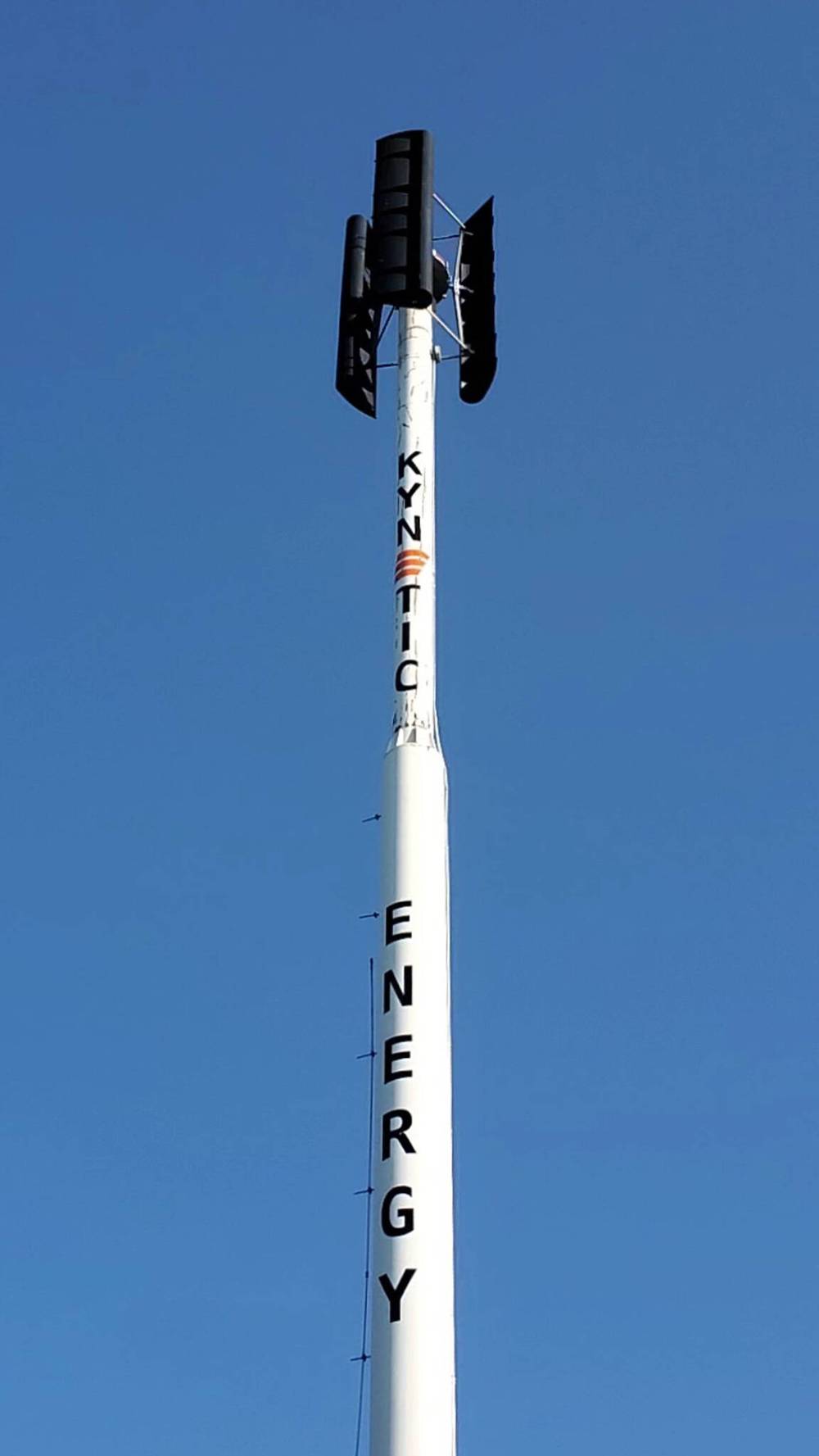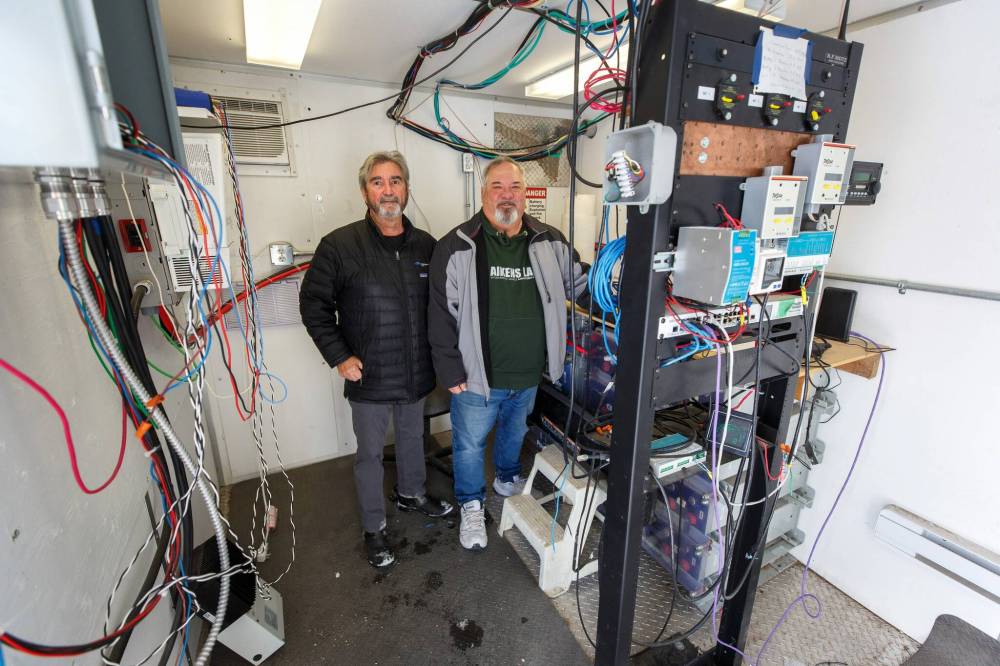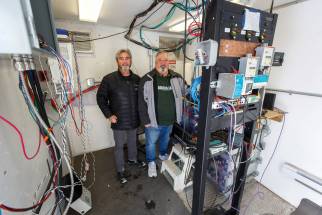Wind in their sails Manitoba company on brink of breakthrough after its turbine technology was tagged by global telecom giant
Read this article for free:
or
Already have an account? Log in here »
To continue reading, please subscribe:
Monthly Digital Subscription
$0 for the first 4 weeks*
- Enjoy unlimited reading on winnipegfreepress.com
- Read the E-Edition, our digital replica newspaper
- Access News Break, our award-winning app
- Play interactive puzzles
*No charge for 4 weeks then price increases to the regular rate of $19.00 plus GST every four weeks. Offer available to new and qualified returning subscribers only. Cancel any time.
Monthly Digital Subscription
$4.75/week*
- Enjoy unlimited reading on winnipegfreepress.com
- Read the E-Edition, our digital replica newspaper
- Access News Break, our award-winning app
- Play interactive puzzles
*Billed as $19 plus GST every four weeks. Cancel any time.
To continue reading, please subscribe:
Add Free Press access to your Brandon Sun subscription for only an additional
$1 for the first 4 weeks*
*Your next subscription payment will increase by $1.00 and you will be charged $16.99 plus GST for four weeks. After four weeks, your payment will increase to $23.99 plus GST every four weeks.
Read unlimited articles for free today:
or
Already have an account? Log in here »
Hey there, time traveller!
This article was published 22/11/2022 (1110 days ago), so information in it may no longer be current.
A small alternative energy company in St. Malo is one of only four companies from around the world selected by Vodafone, the massive U.K. telco, to solve some pressing renewable energy challenges for its cell tower network.
Kynetic Energy Solutions won Vodafone’s renewable power challenge and, if successful, could end up being in line for millions of dollars worth of work.
Kynetic owns the rights to manufacture a unique vertical wind turbine that can generate small amounts of power with very little wind.
The company, which is the only manufacturer of vertical turbines in Canada, put development of the technology on hold during the pandemic. It has only one installation at its shop in St. Malo.
MIKE DEAL / WINNIPEG FREE PRESS Yves Maynard (left) and Don Walker (right), co-owners of Kynetic Energy Solutions, with a combined solar and wind turbine package they say requires little wind to generate power.
“The Vodafone opportunity is huge for us,” said Yves Maynard, Kynetic’s chief executive officer.
Many remote cell tower sites around the world are off the electrical grid and need to be powered by diesel generators.
Vodafone is under a mandate to remove all diesel generators from its cell tower sites by 2025.
Maynard said they are still waiting for a contract from Vodafone, but the British telco is currently looking for a site with an appropriate amount of wind to test Kynetic’s technology.
“We have not made claims that we can make power without wind,” Maynard said.
It would then need to get the local regulatory approval to put up a 90-foot pole and then Vodafone will need 30-to-60 days to collect data to do the proof of concept
“If it produces energy like we say it does and it meets the specs we are saying it should, Vodafone has told us they have 600 sites they want to visit immediately,” said Maynard.
Kynetic’s price per wind turbine is $50,000.
SUPPLIED Kynetic’s price per wind turbine is $50,000.
The hope is that by the summer of next year the company will have to be ramped up to about a dozen employees.
“Already, after the Vodafone announcement, we’re getting calls from small telcos who wouldn’t even take our calls before,” he said.
A Vodafone release from late last month said the company will share more details on the proof-of-concepts in the coming months.
Kynetic was founded in 2018 after Maynard and his business partner Don Walker, bought the global rights to manufacture and market technology patented by a company called Kelso Energy Ltd., located in Winkler and Moosomin, Sask.
Kynetic raised about $1.5 million mostly from investors in Saskatechewan and Alberta, built its test site in St. Malo and then had to basically shut down during the pandemic.
Maynard has extensive experience in the telco business. In the early 90s he co-founded a company in Florida that delivered Internet and television service to the long-haul trucking business in the U.S. That company, called PNV Inc., went public on the Nasdaq Exchange in the late ‘90s, grew to 600 employees but went bankrupt in early 2001.
“If it produces energy like we say it does and it meets the specs we are saying it should, Vodafone has told us they have 600 sites they want to visit immediately.”–Yves Maynard
After returning to Canada several years ago, Maynard and Walker were involved in several Manitoba First Nation broadband projects, including a very successful installation in Norway House, where, according to Maynard, “They get better download speeds than I do in St. Malo.”
Kynetic is out-sourcing its production and has validated a group of manufacturers and fabricators in southern Manitoba to do the job. “I’m not looking to build another empire in St. Malo,” Maynard said.
Production could quickly ramp up to 100 turbines per month once all fabricators are mobilized, he estimates.
Kynetic has identified 1.2 million cell tower sites around the world that are operating on diesel generators at the moment. The generators at those sites have to be continuously operating and each of them burn about 10 to 15 litres of fuel per hour.
MIKE DEAL / WINNIPEG FREE PRESS Maynard and Walker have identified 1.2 million remote cell phone sites in the world powered by costly, polluting diesel generators.
Maynard said there are several such towers in Manitoba, but the company has not been able to to generate any commercial interest in his technology domestically.
“There could not be a worse place for small wind turbine company to try to get launched than Manitoba,” Maynard said. “We have some of the greenest energy in all the world and we have very, very low prices here. I can’t compete with that.’
The situation is very different in Europe, which is many years ahead of North America when it comes to alternative energy and there are already stringent regulations in place.
martin.cash@freepress.mb.ca

Martin Cash has been writing a column and business news at the Free Press since 1989. Over those years he’s written through a number of business cycles and the rise and fall (and rise) in fortunes of many local businesses.
Our newsroom depends on a growing audience of readers to power our journalism. If you are not a paid reader, please consider becoming a subscriber.
Our newsroom depends on its audience of readers to power our journalism. Thank you for your support.







